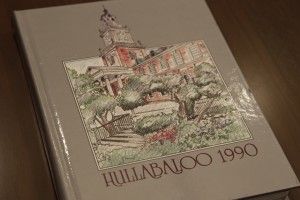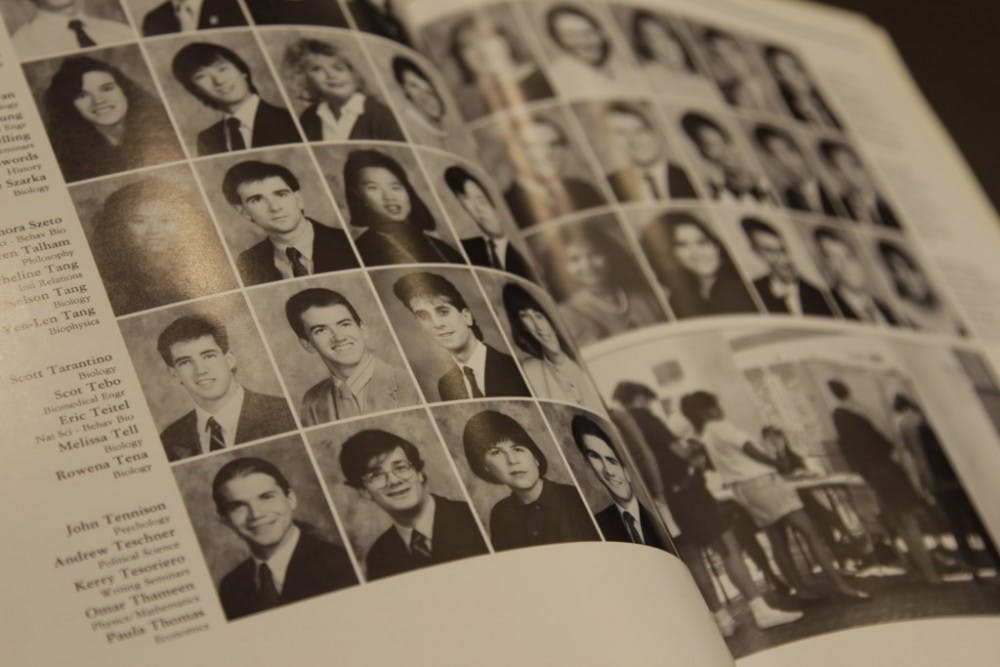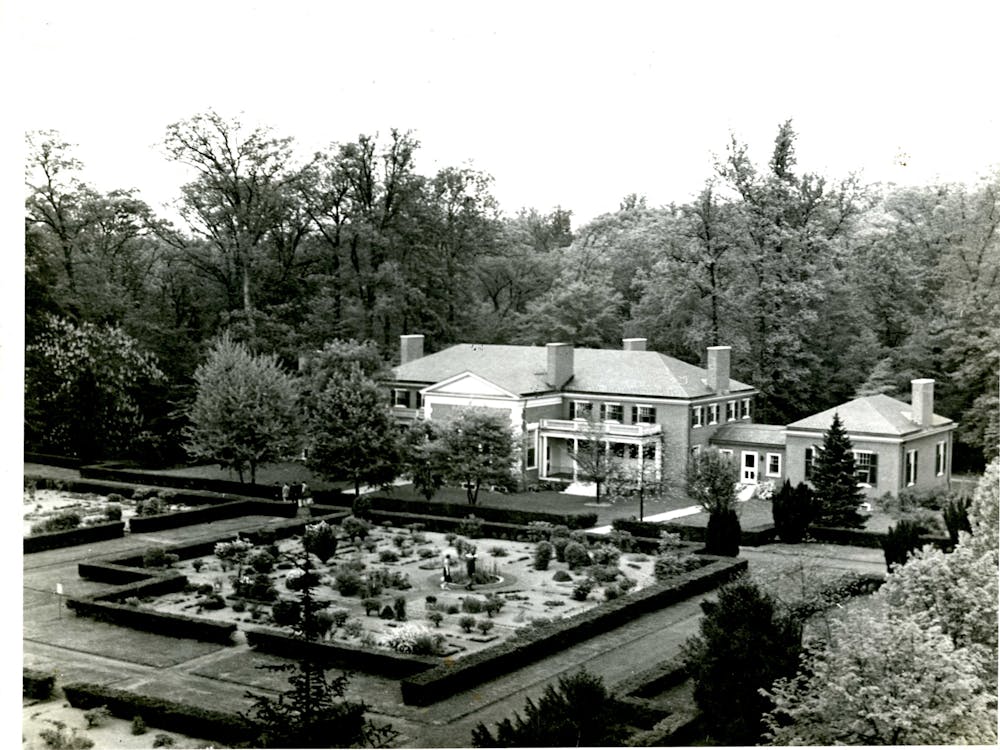The University yearbook, which has been published annually by students since 1889, has been discontinued for the 2015-2016 academic year due to lack of student interest.
Called the Hullabaloo since 1894, the yearbook was formerly published by a student-run club. However, in recent years, interest in the club has waned. Director of the Digital Media Center (DMC) Joan Freedman, who served as the yearbook club’s advisor, began actively seeking out individuals to work as paid yearbook editors. In 2014, an alumna worked on the yearbook by herself.
“There was a club on the books, but it hadn’t had any leadership or members for a number of years. I’ve been doing it now for three years and the person I took over advising the yearbook from, also had tremendous difficulty in actually recruiting students to do the book. So, at some point, it becomes a paid student job versus a healthy student organization that wants to do this,” Freedman said. “And when it became a student job, I think it lost some of the authenticity, and it’s no longer the voice of a group of students that represent the student body. It’s one person’s view.”
In 2015, Freedman managed to recruit editors, but by the end of the year, only the editor-in-chief and business manager were still involved in the production.
“I went to the Student Activities Fair, put a lot of effort into finding someone to be the editor, someone to be the business manager, and recruited five or six people who were excited to help with everything,” Freedman said. “They started working on it, and one by one people lost interest and stepped back by last spring. By then, it was pretty much just the editor-in-chief and the business person and they stuck with it because they were being paid to do it.”
However, lack of student interest in putting together the yearbook hasn’t been the only issue. In recent years, the students and staff involved have been struggling to market and sell the Hullabaloo to graduating seniors due to a decrease in awareness of the product. Consequently, yearbook prices have increased due to low sales.
Senior Class President Amy Sun detailed how the yearbook fared last year.
“Last year, they only sold [228] yearbooks, since there was not a high demand from seniors. They were hardcover and each cost [$75], which could have prevented some students from buying it. The printing took months, so each yearbook was delivered the August after graduation, which wasn’t ideal,” Sun wrote in an email to The News-Letter.
“Joan Freedman and I have reached out to many student groups and none of them are willing to step up.” — Amy Sun, Senior Class President
The photos of the seniors in the most recent 2015 edition represented barely 20 percent of the graduating class. Freedman noted that a good portion of the interested buyers were parents.
“There are three different times that a photographer comes in to actually take the pictures. Students will have to go online, pick a particular time and show up at the time. But the reality is that people just don’t sign up,” Freedman said. “The students aren’t all that interested. Their parents are a lot more interested. There are some parents that will buy all four years because they want to have the collection of their kid’s time at Hopkins.”
Despite low sales, Sun said that she and Freedman still attempted to identify a group to take on the responsibility of making the Hullabaloo this year.
“Joan Freedman and I have reached out to many student groups and none of them are willing to step up to take on the role,” Sun wrote. “Although I would personally love to have a yearbook and I’m disappointed that it will be discontinued this year, we don’t have the student staff necessary to complete the job, and it has always been a student-led initiative in the past.”
With the discontinuation of the Hullabaloo yearbook, Hopkins is having photographers take pictures of all seniors during graduation.
“This year, we have been organizing senior portraits sessions with Legacy Studios, and there will also be a photographer at graduation,” Sun wrote. “All seniors will have two photos taken in their caps and gowns, one as they walk across stage and are handed their diploma, and another in front of a back drop as they exit the stage. All students will receive free passport-sized digital proofs of this photo and will have the opportunity to purchase them online.”
In the past, with fewer students on campus, the Hullabaloo was a much more comprehensive summary of student life, with captions describing each picture and text detailing aspects of student life along with candid pictures and senior portraits. Thus, Freedman explained, they were of great historical value for the Alumni Association and the library archives.

“The Alumni Association had put tremendous value in the yearbook because it really documented the lives of their alumni when they were going to college. I think that from a historical record, when there were a lot of photos that really showed campus life with documented captions, the alumni folks felt that it was a fabulous resource,” Freedman said.
However, its documentation value has significantly decreased due to the current ease of acquiring photos and accounts of student life from social media.
“The folks at the archives don’t care one way or another if there is or isn’t a yearbook because they’re still collecting all the materials. All of the information is still being captured, the pictures are being captured. They are mining every social media site to collect it,” Freedman said.
In recent years, yearbook publishers had obtained a substantial number of their photographs from Facebook accounts and from student groups that had already posted their pictures elsewhere online.
Freedman believes that the yearbook is no longer the best representation of students’ individual experiences at Hopkins.
“As there are more and more people on campus, it’s harder and harder to make it a good lasting useful documentation of that year,” Freedman said. “In order to fill the pages, they’re just recycling Facebook content. Seems to me that if you have the ability to use social media to document your own experience, that’s going to be more meaningful than somebody else digging through Facebook and saying ‘This is our experience.’”
Freedman believes that there needs to be student interest for the administration to continue supporting the group.
“If it doesn’t come from within the student body that there is a culture of wanting to make a yearbook, we have to question why we are still putting the time and money into making it. It just didn’t make sense from the Dean of Student Life Office to continue moving forward an agenda that wasn’t the students’ agenda. We are here to advise student clubs and support students as they pursue things that they’re interested in,” Freedman said.
Freedman thinks only students can capture the experiences of their college lives.
“I think they would tell a different story. I think the students would put things in there that were meaningful to them and their experiences. The administration would put things in that made the school look good, that were important to their alumni donors. It’s a whole different thing, whether it’s a student voice or a university voice,” Freedman said.
The reality is that many universities are halting the production of student-made yearbooks. While some are shifting responsibility to private contractors or staff members, Freedman believes that the Hullabaloo should still remain a student activity.
“More and more campuses are choosing not to do books, and some campuses are realizing, as we did, that if there just isn’t a student initiative to do the yearbook, then they’re not going to keep doing the yearbook. And I think that’s a really important point, that the yearbook itself is a student activity,” she said.
The only current option for reestablishing the Hullabaloo, Freedman said, is renewed student interest:
“If there is a group of students willing to do the work, we certainly will have that conversation.”
Correction: Previously, the article stated that yearbooks cost over $100, instead of $75. Also, 228 yearbooks, not "300 or so" yearbooks, were sold in 2015.























Please note All comments are eligible for publication in The News-Letter.